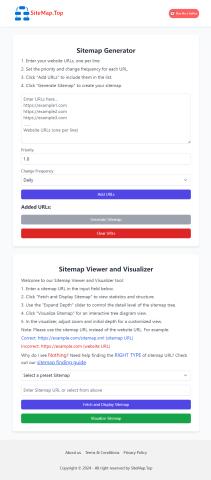In today's digital landscape, securing cloud environments has become paramount for organizations worldwide. As more businesses migrate to the cloud, the demand for skilled professionals who can design, implement, and manage secure cloud architectures has grown exponentially. CCIE Security experts play a pivotal role in safeguarding cloud infrastructures against ever-evolving cyber threats. Their advanced knowledge of network security technologies and protocols makes them invaluable assets in cloud networking deployments.
This blog explores the real-world applications of CCIE Security in cloud networking, detailing how certified professionals contribute to securing cloud infrastructures and enhancing organizational resilience against threats.
The Role of CCIE Security in Cloud Networking
Cloud networking involves the interconnection of various cloud resources—such as virtual machines, databases, and storage—using network services. While the cloud offers scalability and cost-efficiency, it also introduces security challenges, including unauthorized access, data breaches, and insider threats. CCIE Security-certified professionals address these challenges by applying their expertise in:
1. Secure Cloud Architecture Design
Designing a secure cloud environment requires in-depth knowledge of cloud infrastructure and networking principles. CCIE Security experts:
Implement secure Virtual Private Clouds (VPCs) and private networks.
Use advanced encryption methods to protect data at rest and in transit.
Apply secure segmentation practices to isolate sensitive workloads.
2. Implementing Zero Trust Models
A Zero Trust architecture is critical in cloud networking to ensure that every access request is authenticated and authorized. CCIE Security professionals:
Integrate Identity and Access Management (IAM) systems with cloud platforms.
Enforce multi-factor authentication (MFA) for all user accounts.
Utilize micro-segmentation to reduce attack surfaces within the cloud.
3. Configuring Secure Network Gateways
Cloud environments rely on network gateways to manage external access. CCIE Security-certified engineers:
Configure firewalls to monitor and control inbound and outbound traffic.
Deploy secure web gateways (SWGs) to filter malicious content.
Implement Virtual Private Network (VPN) solutions for remote access.
Advanced Threat Protection in Cloud Networking
Cyber threats in the cloud are increasingly sophisticated, requiring advanced solutions for detection and mitigation. CCIE Security-certified professionals excel in:
1. Intrusion Detection and Prevention Systems (IDS/IPS)
By deploying IDS/IPS systems in cloud environments, CCIE Security professionals detect and mitigate malicious activities. This includes preventing Distributed Denial-of-Service (DDoS) attacks, identifying unauthorized access attempts, and blocking suspicious data transfers.
2. Behavioral Analytics and Machine Learning
Using AI-driven tools, CCIE Security experts analyze user behavior patterns to identify anomalies. For example:
Detecting unusual login locations or times.
Identifying irregular data access or transfer behaviors.
3. Threat Intelligence Integration
CCIE Security-certified engineers use threat intelligence feeds to stay updated on the latest vulnerabilities and attack vectors. By integrating this intelligence into cloud platforms, they proactively block emerging threats.
Securing Multi-Cloud Environments
Many organizations adopt a multi-cloud strategy, using services from multiple providers like AWS, Microsoft Azure, and Google Cloud Platform. This complexity requires a unified security approach, which CCIE Security-certified professionals are equipped to deliver:
Centralized Policy Management: Configuring and enforcing consistent security policies across different cloud platforms.
Unified Monitoring and Logging: Using tools like Cisco SecureX to gain holistic visibility into multi-cloud environments.
Inter-Cloud Connectivity: Ensuring secure communication between resources spread across various clouds.
Enhancing Data Protection in the Cloud
Data breaches remain a primary concern for organizations leveraging cloud services. CCIE Security-certified professionals employ various techniques to enhance data protection:
1. Data Encryption
Encrypting data at rest, in transit, and during processing ensures that sensitive information remains secure. CCIE Security professionals configure encryption protocols such as TLS and AES-256 for maximum protection.
2. Data Loss Prevention (DLP)
DLP solutions help prevent unauthorized data transfers. CCIE Security-certified engineers implement DLP policies that detect and block data leaks, whether intentional or accidental.
3. Backup and Disaster Recovery
By configuring secure backup solutions, CCIE Security experts ensure business continuity in case of data loss or corruption. They also design disaster recovery plans tailored to cloud environments.
Compliance and Governance in Cloud Networking
Organizations must comply with various regulations, such as GDPR, HIPAA, and PCI DSS, to operate in different regions and industries. CCIE Security-certified professionals help businesses maintain compliance by:
Implementing audit-ready configurations that meet regulatory requirements.
Setting up role-based access controls (RBAC) to restrict data access.
Ensuring encryption and secure storage of sensitive data.
Automation and Orchestration in Cloud Security
Automation reduces human errors and enhances the efficiency of cloud security operations. CCIE Security professionals leverage tools like Cisco DNA Center and Ansible to automate:
Firewall rule deployments.
Network segmentation configurations.
Routine security audits and vulnerability scans.
Real-World Case Studies
Case Study 1: Preventing Data Breaches in a SaaS Company
A SaaS provider faced increasing threats to its cloud-hosted applications. CCIE Security-certified engineers were brought in to implement a robust Zero Trust model, including MFA, IAM integration, and real-time monitoring. The result was a 40% reduction in security incidents within six months.
Case Study 2: Securing Healthcare Data in the Cloud
A healthcare organization moved its patient records to the cloud but struggled with compliance. CCIE Security experts configured secure encryption, set up DLP solutions, and conducted routine compliance audits, ensuring the organization met HIPAA requirements.
Conclusion
The role of CCIE Security professionals in cloud networking is indispensable. From designing secure architectures to automating security processes, their expertise enables businesses to leverage the cloud safely and efficiently. Whether it’s protecting sensitive data, mitigating threats, or ensuring compliance, CCIE Security-certified professionals are at the forefront of cloud security innovation.
If you’re looking to enhance your career and become a cloud networking expert, enrolling in CCIE Security Training is the first step toward achieving your goal. Start your journey today at Nitiz Sharma’s Cisco Certification Programs and unlock a world of opportunities!
